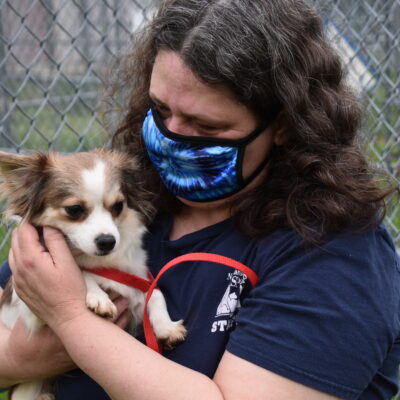Thank you for your interest in our farm animal program! The New Hampshire SPCA is one of the few animal shelters in the state equipped to provide care and adoption for homeless, abused or neglected farm animals. Our farmyard friends available for adoption include horses, ponies, pigs, goats, sheep, fowl, and occasionally other barnyard animals.
For more information about adopting a horse or farm animal please contact email: FarmAnimals@nhspca.org.



